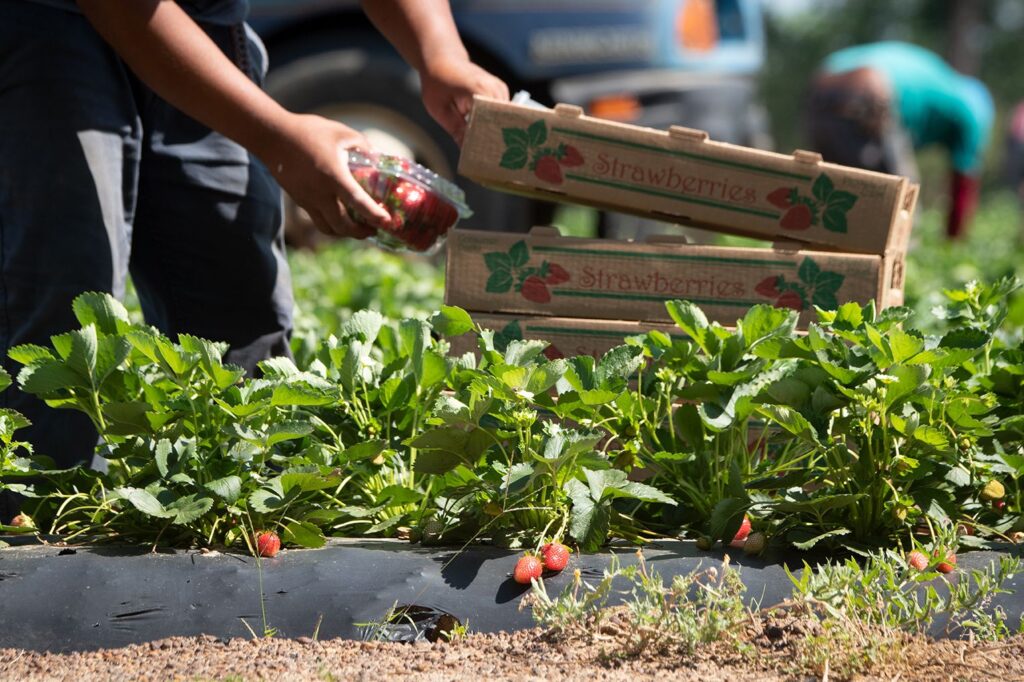Specialty Crop Coalition Request Adverse Effect Wage Rate Clarity
 As the Adverse Effect Wage Rate (AEWR) for H-2A guest workers continues to climb, specialty crop groups in five states filed a freedom of information request to understand how the USDA calculates the rate. The AEWR determines the minimum rate for H-2A workers.
As the Adverse Effect Wage Rate (AEWR) for H-2A guest workers continues to climb, specialty crop groups in five states filed a freedom of information request to understand how the USDA calculates the rate. The AEWR determines the minimum rate for H-2A workers.
The coalition is being led by the North Carolina Sweetpotato Commission (NCSC) and the Georgia Fruit and Vegetable Growers Association (GFVGA). Other organizations that have joined the coalition include:
- Alabama Farmers Federation
- Alabama Fruit and Vegetable Growers Association
- Alabama Nursery and Landscape Association
- Blue Ridge Apple Growers Association
- Georgia Agribusiness Council
- Georgia Berry Exchange
- Georgia Farm Bureau
- Georgia Green Industry Association
- Georgia Peach Council
- Georgia Pecan Growers Association
- Georgia Watermelon Association
- International Fresh Produce Association
- National Council of Agricultural Employers
- North Carolina Apple Growers Association
- North Carolina Christmas Tree Association
- North Carolina Farm Bureau
- North Carolina Growers Association
- North Carolina Nursery & Landscape Association
- North Carolina Strawberry Association
- North Carolina Tomato Growers Association
- North Carolina Vegetable Growers Association
- North Carolina Watermelon Association
- Michigan Asparagus Association
- South Carolina Farm Bureau
- South Carolina Peach Council
- South Carolina Small Fruit Growers Association
- Tobacco Growers of North Carolina
The Executive Vice President of GFVGA reported that Georgia growers have experienced 31% increases in AEWR over the last three years. The Executive Director of NCSC stated that North Carolina growers have experienced an 18% increase in AEWR over the last three years. The problem is that there is no visibility to how the rates are determined. With labor being a major input cost, growers need better visibility to plan appropriately.
Specialty crop growers are reliant on the H-2A program to meet labor demands. There are no mechanized alternatives for many crops. The coalition is in communication with representatives to voice concerns about rising AEWR rates and possible reform.
Read more about the specialty crop coalition’s efforts to seek AEWR clarity here.
